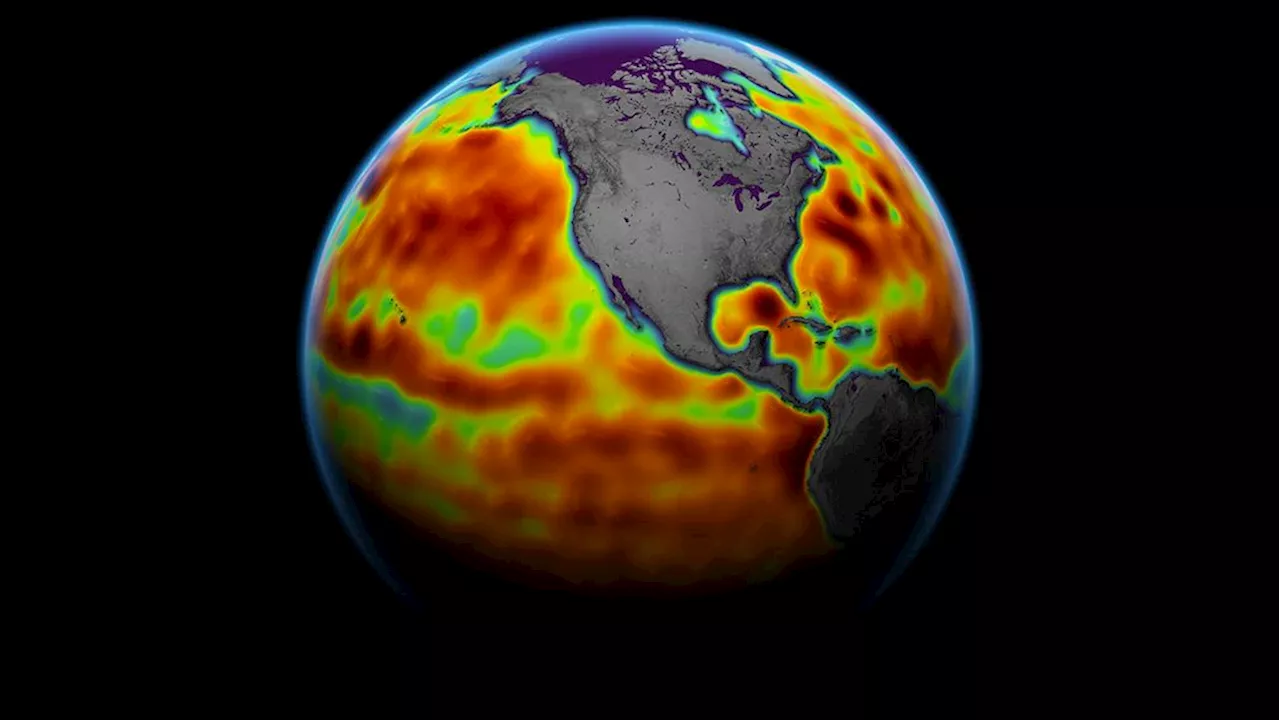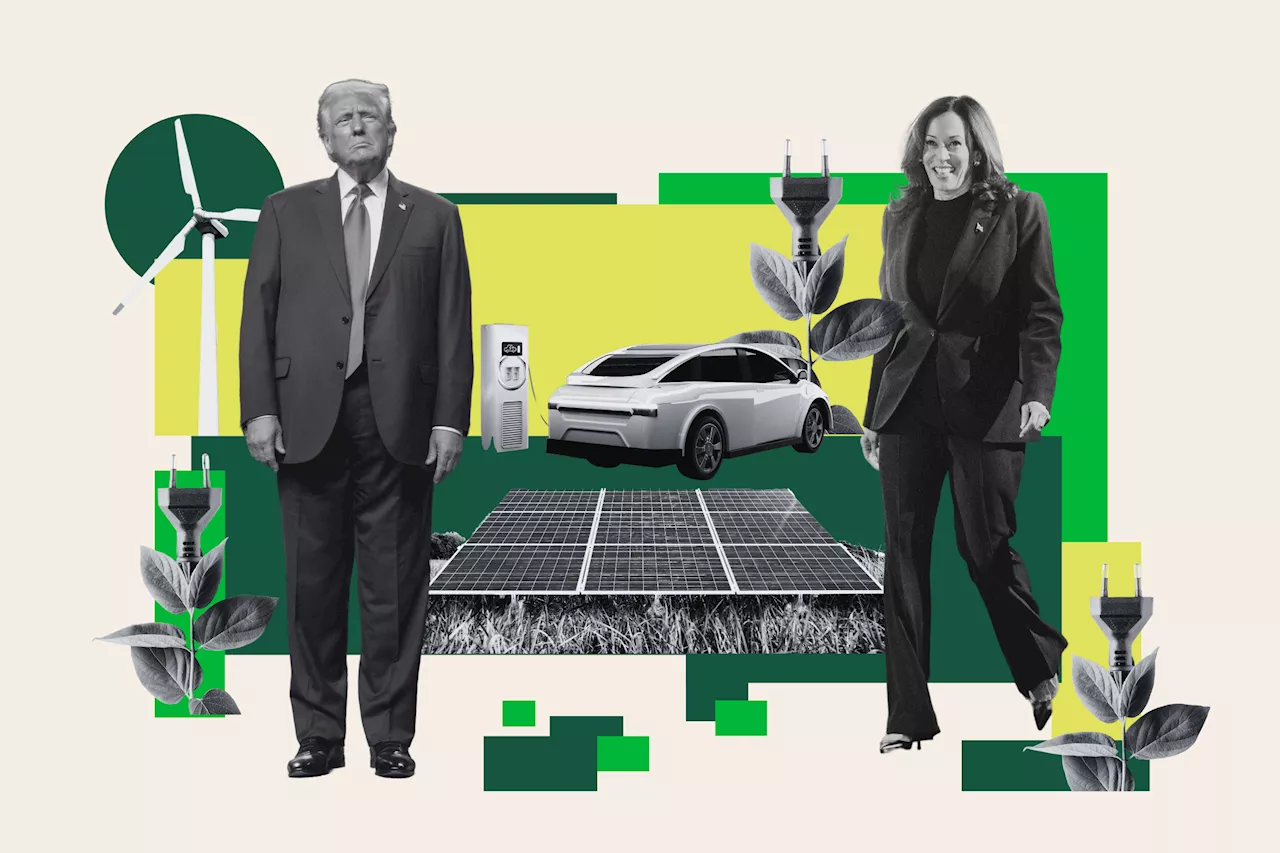Learn how to balance mitigation activities in the shorter term with long-term investments that will help your organization adapt to future changes.
Climate change is causing severe weather, dangerously elevated temperatures, and water shortages around the world. Meanwhile, firms are struggling to reduce their carbon emissions while adapting their operations to these new conditions.
HBR On Strategy curates the best case studies and conversations with the world’s top business and management experts, to help you unlock new ways of doing business. New episodes every week.HANNAH BATES: Welcome to HBR On Strategy, case studies and conversations with the world’s top business and management experts, hand-selected to help you unlock new ways of doing business.
In this episode, you’ll learn how to balance mitigation activities in the shorter term with long-term investments that will help your organization adapt to future changes. Harvard Business School professors Forest Reinhardt and Michael Toffel say there’s a lot businesses can learn from the Navy’s forward-looking approach. They’re the authors of “Managing Climate Change: Lessons from the U.S. Navy,” in the July-August 2017 issue of Harvard Business Review. And they’re here with us now.FOREST REINHARDT: Because it’s taking place. So most firms in the United States at least when they think about climate change have been thinking mostly about mitigation.
A second reason is that climate change is potentially destabilizing to societies, especially societies which are not particularly rich and not particularly well governed. And as those societies become increasingly stressed by things like drought and storm severity, the kinds of behaviors that call the military into action are going to become more frequent, whether those are wars or internal conflicts or just need for humanitarian assistance.
SARAH GREEN CARMICHAEL: When you guys think about where we could be in 30 or 60 years, with Arctic sea lanes potentially opening up, what you see potentially happening there? What would the Navy like to see the U.S. Navy like to see happen there? FOREST REINHARDT: So directionally the forecasts have been correct. There’s a lot of uncertainty about the climate system. There’s a lot that we don’t understand. We do, however, extremely well understand the basic physics that’s been known for a century.
MICHAEL TOFFEL: Well one difference that actually looks like a similarity but is actually motivated by something different is a lot of companies, as Forest mentioned earlier, are thinking about mitigating their impact on climate change by shifting, for example, to renewable energy to supply their factory to their warehouses or their offices.
MICHAEL TOFFEL: So I would say what I would want firms to take away from what we’ve learned from the Navy is to think about climate change not only from a mitigation and adaptation perspective, as Forest mentioned, but also to cast a lens, to ask the question, How will this affect our strategy? How will it affect the demand for our products and services? Will it shift the markets where we’re expecting demand? And then on supply side is, How will it affect our operations, and how will it affect...
There are and climate companies have been trying to offset the amount of carbon that they put out into the atmosphere by reforestation projects or trying to reduce deforestation or by investing in trying to cap carbon emissions elsewhere. So there are a host of companies that are coming out describing their activities as carbon neutral by doing these alternative projects.
FOREST REINHARDT: At one level, the idea that firms can learn from the Navy seems crazy. They’re so different from one another. I mean, the Navy is a government, and most firms are private. The Navy’s primary product, if you can call it that, is lethal force delivered anywhere in the world at short notice to compel people to do stuff they don’t want to do. There is no legitimate firm that does that at the same time.
United States Latest News, United States Headlines
Similar News:You can also read news stories similar to this one that we have collected from other news sources.
 To fix climate anxiety (and also climate change), we first have to fix individualismWhat, exactly, is climate anxiety? And how should we cope? Environmental reporter Rosanna Xia explores the many dimensions to our existential dread.
To fix climate anxiety (and also climate change), we first have to fix individualismWhat, exactly, is climate anxiety? And how should we cope? Environmental reporter Rosanna Xia explores the many dimensions to our existential dread.
Read more »
 How satellite data has proven climate change is a climate crisisMonisha Ravisetti is Space.com's Astronomy Editor. She covers black holes, star explosions, gravitational waves, exoplanet discoveries and other enigmas hidden across the fabric of space and time. Previously, she was a science writer at CNET, and before that, reported for The Academic Times.
How satellite data has proven climate change is a climate crisisMonisha Ravisetti is Space.com's Astronomy Editor. She covers black holes, star explosions, gravitational waves, exoplanet discoveries and other enigmas hidden across the fabric of space and time. Previously, she was a science writer at CNET, and before that, reported for The Academic Times.
Read more »
 Debate Strategy: Kamala Harris to Cast Herself as Agent of Change After Years in PowerSource of breaking news and analysis, insightful commentary and original reporting, curated and written specifically for the new generation of independent and conservative thinkers.
Debate Strategy: Kamala Harris to Cast Herself as Agent of Change After Years in PowerSource of breaking news and analysis, insightful commentary and original reporting, curated and written specifically for the new generation of independent and conservative thinkers.
Read more »
 The Harris campaign might need to change its strategyPolitical News and Conservative Analysis About Congress, the President, and the Federal Government
The Harris campaign might need to change its strategyPolitical News and Conservative Analysis About Congress, the President, and the Federal Government
Read more »
 3 Lessons From Native Hawaiian Principles That Will Change The Way You LiveAnd you don't need to visit Hawai‘i to put them into practice.
3 Lessons From Native Hawaiian Principles That Will Change The Way You LiveAnd you don't need to visit Hawai‘i to put them into practice.
Read more »
 With Election Near, the Political Climate Looms Over Climate Week NYC'The climate world is looking at the U.S. election and thinking, 'We can't really afford another rollback,'' Climate Group CEO Helen Clarkson told Newsweek.
With Election Near, the Political Climate Looms Over Climate Week NYC'The climate world is looking at the U.S. election and thinking, 'We can't really afford another rollback,'' Climate Group CEO Helen Clarkson told Newsweek.
Read more »
